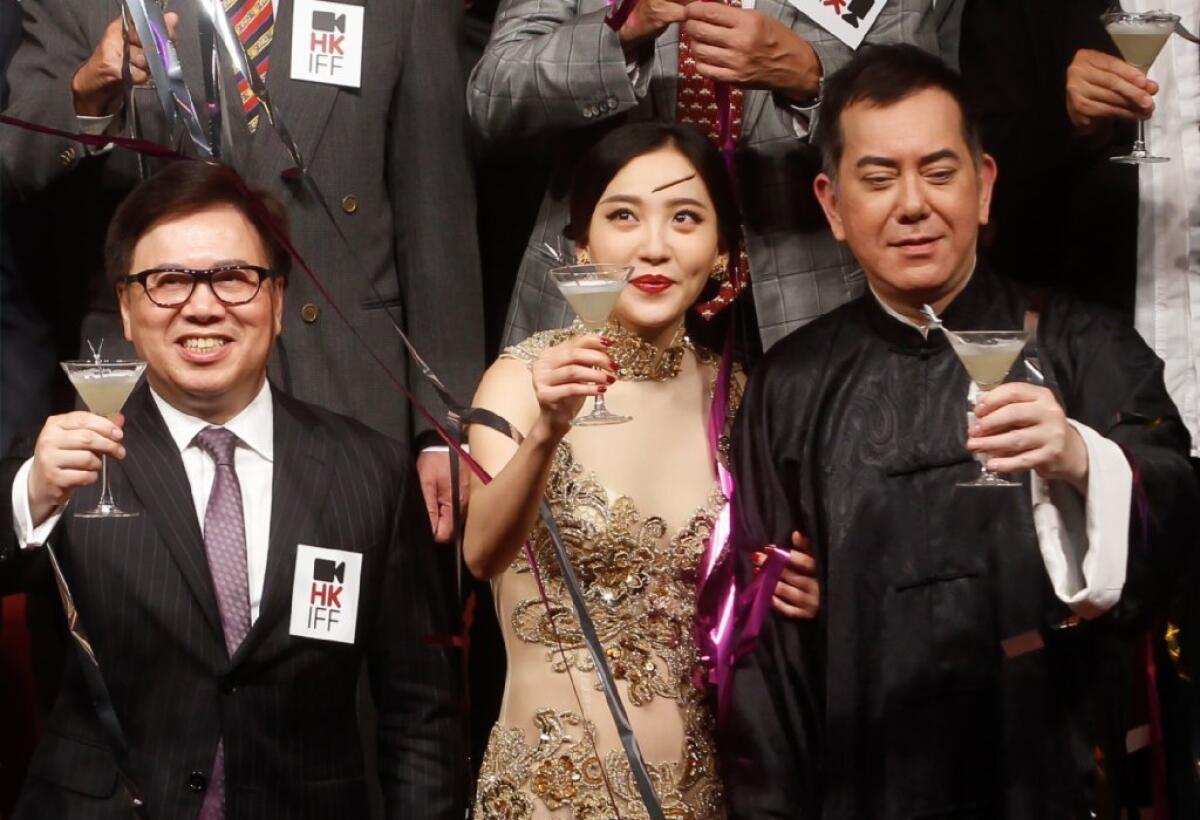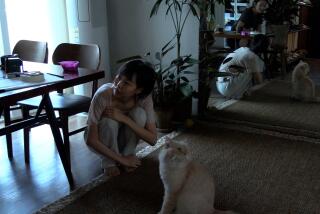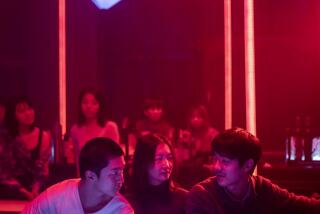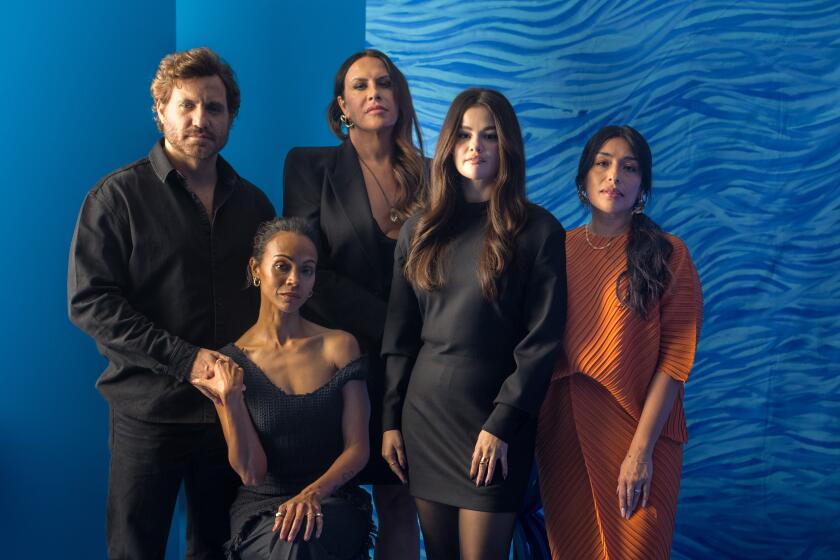Hong Kong Film Festival: A film that deals with memory (and Macau)

HONG KONG -- There is a moment in “The Last Time I Saw Macau” -- which plays Wednesday at the Hong Kong International Film Festival and is being distributed in the United States this summer by Cinema Guild -- in which the camera captures the city through the backseat of a cab.
The small screen attached to the back of the driver’s seat plays news footage of the 18th National Congress of the Chinese Communist Party. But the image is upside down.
The shot drolly observes Macau’s new identity as a Chinese city. Beyond this, it shows the topsy-turvy world as envisioned by the Portuguese filmmaking duo João Pedro Rodrigues (director of “To Die Like a Man”) and João Rui Guerra da Mata.
Guerra da Mata spent his childhood in Macau, a former Portuguese colony located near Hong Kong that was handed back to China in 1999. The flamboyant filmmaker grew up speaking Cantonese and describes his formative years in the 1970s -- a time spent catching dragonflies on Macau’s cobbled streets -- as “paradise, really.”
In late 2009, Guerra da Mata returned to the former colony for the first time in 30 years alongside Rodrigues to film “The Last Time I Saw Macau.” What began for the pair as a documentary soon developed into genre-bending fiction that mixes memoir, film noir and sci-fi.
“The Last Time I Saw Macau” opens with the busty, peroxide blond transvestite Candy lip-synching to Jane Russell’s “You Kill Me” from the 1952 Josef von Sternberg film “Macao.” Candy is, as she terms it, “self-imprisoned in Asian exile”; tigers prowl in a cage behind her. She also knows too much about a superstitious local sect that predicts the end of the world is nigh.
Worried that her life is in danger, she reaches out to an old friend, now living in Portugal -- the narrator of the film, who is voiced by Guerra da Mata and shares his name. He returns to the Macau of his childhood only to find its colonial buildings decaying and a foreboding sense of death pervading the city.
Guerra da Mata and Rodrigues (who visited Macau for the first time during filming) wanted to capture the shifting nature of memory.
“That was our starting point: How can we make a film that deals with memory?” explains Guerra da Mata over coffee in a hotel lobby in Hong Kong. “I really like to think about this [film] as two young kids playing and imagining things. We wanted to make a very playful film but we always wanted to play with cliches.”
STORY: Hong Kong Film Festival takes on difficult issues
Candy is the only character whose face we ever see. The narrator is viewed by the audience just as a shadow on the pavement or a hand reaching for a whiskey in a grubby hotel room. Sound and images are often disconnected or out of synch. Macau today -- a city of unprepossessing skyscrapers, noodle bars, garish casinos and crumbling colonial elegance -- is portrayed through a series of postcard-like shots.
“The documentary is in the images,” explains Rodrigues. “The fiction is in the sounds.”
Wound into this deliberately B-movie aesthetic are multiple references to the exotic Macau of the past, as portrayed in film and literature. The directors pay homage to “Macao” time and again; Guerra da Mata’s real childhood home -- the Moorish Barracks, now a UNESCO World Heritage site -- is featured not only in “The Last Time I Saw Macau” but also in the first shot of Von Sternberg’s film. Odes do not stop there: The narrator checks into the same hotel that Ian Fleming, author of the James Bond novels, once stayed in.
Despite these allusions, all but the most art-house of audiences will likely be put off by the drifting plot and disembodied tone of the film. Large chunks are filled simply with random images. For the filmmakers this is an “emotional portrait” of the city, but it verges on tedium.
Where the duo succeeds is in questioning Macau’s identity. Guerra da Mata recalls a local asking him during filming where he was from. He replied Portugal -- a country the local had barely heard of despite Macau’s 400 years of Portuguese rule.
“The guy looked at us like we were out of space,” says Guerra da Mata. “We were a bit sad.”
It is this feeling of being pushed out that pervades the film.
ALSO:
“Django Unchained” to be shown in China
Hong Kong Film Festival takes on difficult issues
Ai Weiwei at work on a heavy-metal rock album and movie project
PHOTOS AND MORE
TIMELINE: Violence in movies
ENVELOPE: The latest awards buzz
PHOTOS: Greatest box office flops
More to Read
Only good movies
Get the Indie Focus newsletter, Mark Olsen's weekly guide to the world of cinema.
You may occasionally receive promotional content from the Los Angeles Times.










